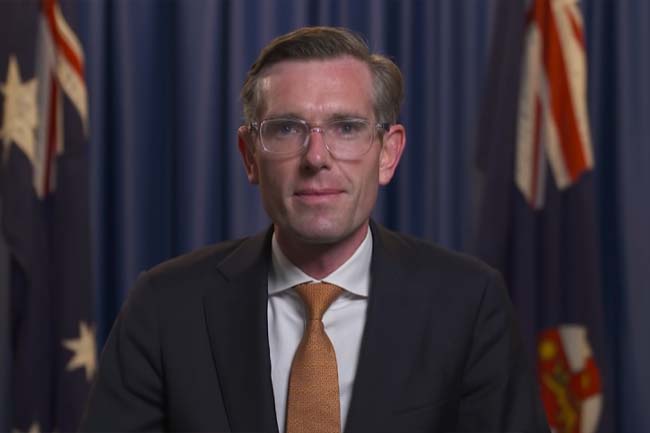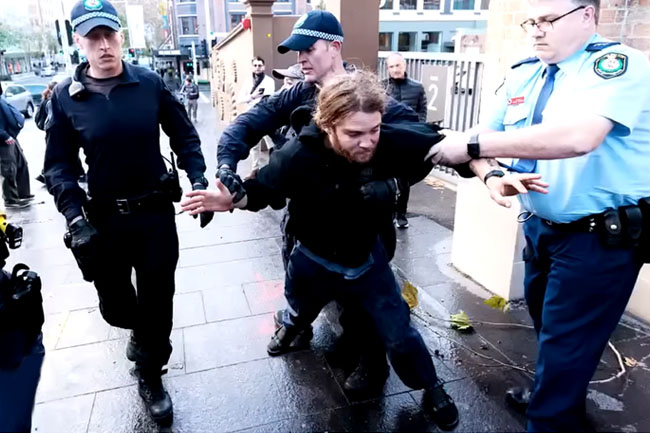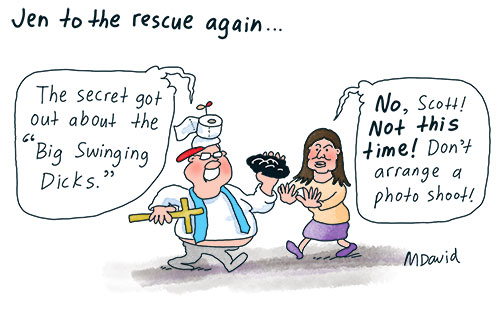The lives of van dwellers as portrayed in the film Nomadland provide a reminder of our government's ignorance towards the homelessness crisis, writes Joanna Psaros.
AT THIS YEAR'S Oscars, Nomadland swept the board of the ceremony’s most coveted categories, winning Best Picture, Best Actress and Best Director.
So, what is it about Nomadland that resonates so strongly with audiences? There’s the stunning nature cinematography that showcases the cruel beauty of the American landscape. Frances McDormand’s raw portrayal of a lost woman’s desperation and dignity. But most significantly, director Chloe Zhao has not only told a story but captured a setting and a moment in living American history.
All of the film’s main characters apart from McDormand’s are played by real “van people”, or nomads who live in cars and vans. The film feels real because it is. Not just this community portrayed, but the America whose breed of rabid capitalism consumes workers and leaves in its wake boundless poverty and ruin.
At least, we can selfishly tell ourselves, things aren’t like that in Australia. But for how much longer?
It’s true that Australia’s minimum wage and social security system are relatively generous when compared to America. But as Nomadland demonstrates, that is a low bar to clear. The reality is Australia doesn’t have a fraction of the number of spaces to house people in need, in either the short or the long-term. And for people sleeping rough, in insecure housing or at risk of homelessness, things are getting worse.
Homelessness has been on the rise in Australia every year since 2015, with rates predicted to increase even more dramatically in the immediate future with the economic after-effects of COVID-19.
While the NSW State Government does fund a number of new housing spaces intended for people experiencing homelessness, analysis shows that the rate of increased housing is not even close to keeping pace with general population growth, let alone the growth of homelessness. It is not surprising, therefore, that half of all people seeking help from homelessness services are turned away without accommodation. All in all, in Australia there are an estimated 116,000 people without a secure place to live at any given time.
So, what is the Government doing to address this national social policy crisis? For a start, threatening to cut $57 million in funding from already overstretched essential homelessness services.
The funding, which is allocated across a number of homelessness charities that provide emergency and longer-term accommodation as well as other services such as the provision of support to women and children escaping domestic violence, is scheduled to end in June 2021 unless renewed.
James Toomey, CEO of Mission Australia, estimates that this would result in 500 fewer frontline workers. Frontline workers are the people who respond to the immediate needs of those sleeping rough and connect those experiencing homeless with accommodation.
The $57 million is not set to be reallocated. It would be returned to Federal Government savings. The same Federal Government that in December spent $158 billion on reducing the tax bill of Australia’s highest income brackets. For context, that’s the equivalent of giving $1,000 to high earners (more than 20% of whom own two or more properties) and withholding 36 cents from homelessness charities to save money.
The comparison between Nomadland and Australia’s homelessness crisis is not perfect and homelessness and insecure housing rates are not as widespread as in the locations in which the film’s protagonist originated — yet. For example, in 2019, the poverty rate in the United States was 17.8%. In Australia, it was 12.4%.
Additionally, sleeping in a vehicle is just one form of homelessness. Nomadland didn’t tell the stories and specific hardships of rough sleepers, or people on social housing waitlists, or people fleeing abusive relationships and families.
But one commonality is that in both cases, people who are homeless or at risk of homelessness learn quickly to get by on their own strength and ingenuity. Because they don’t know if help will be coming.
Joanna Psaros has a background in law and international affairs. She writes on women's issues, culture, and politics at www.girlslockerroomtalk.com and is passionate about her involvement with non-profit Australian Multi-Cultural Communities United.
Related Articles
- Australia's governments must be held accountable for the homelessness crisis
- WA Government has betrayed its homeless
- It's time for governments to put the homeless first
- Australia must build 150,000 public rental homes and end all forms of homelessness
- Australia’s homeless — third highest rate and street homeless deaths increasing
 This work is licensed under a Creative Commons Attribution-NonCommercial-NoDerivs 3.0 Australia License
This work is licensed under a Creative Commons Attribution-NonCommercial-NoDerivs 3.0 Australia License
Support independent journalism Subscribe to IA.














